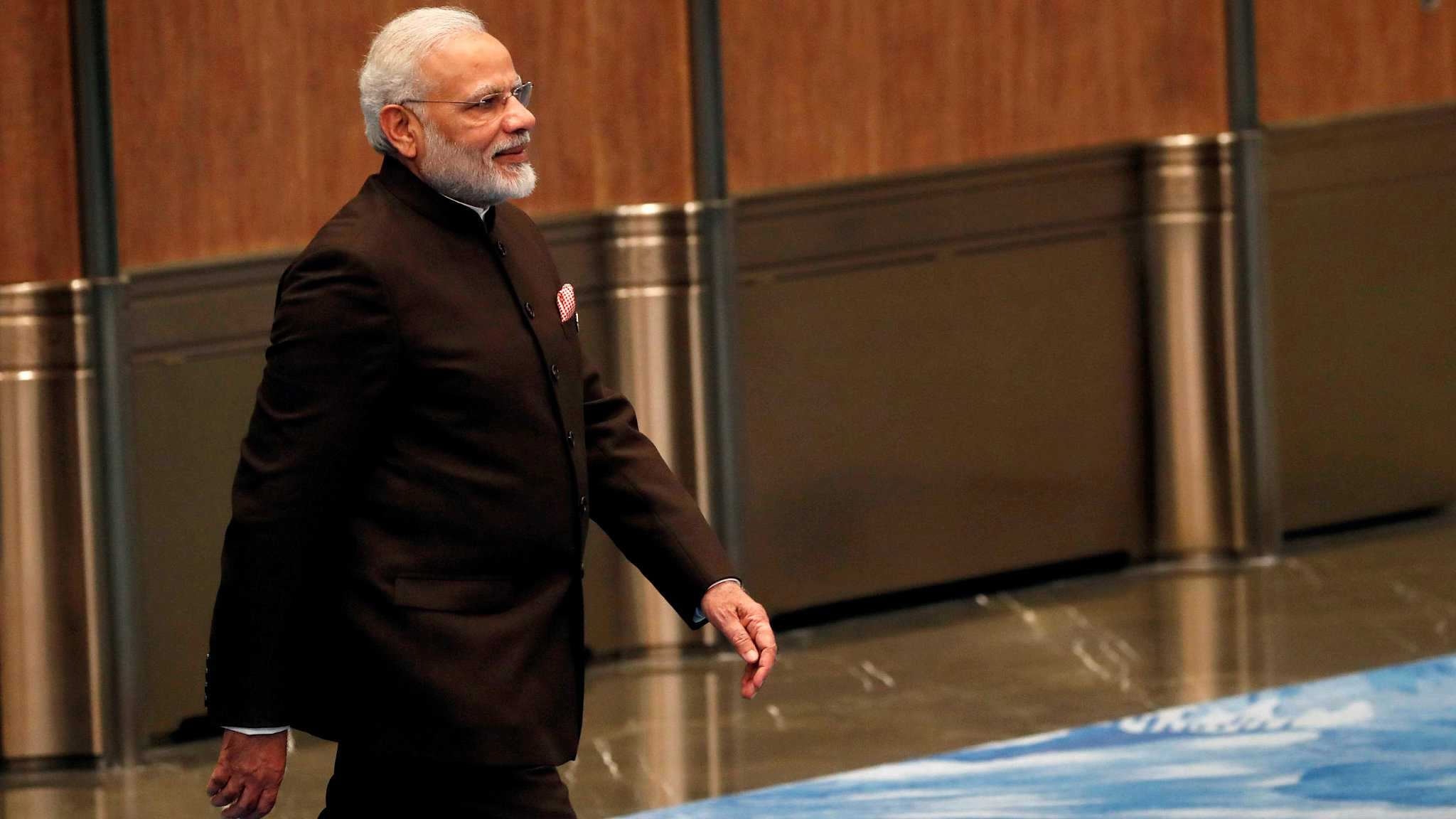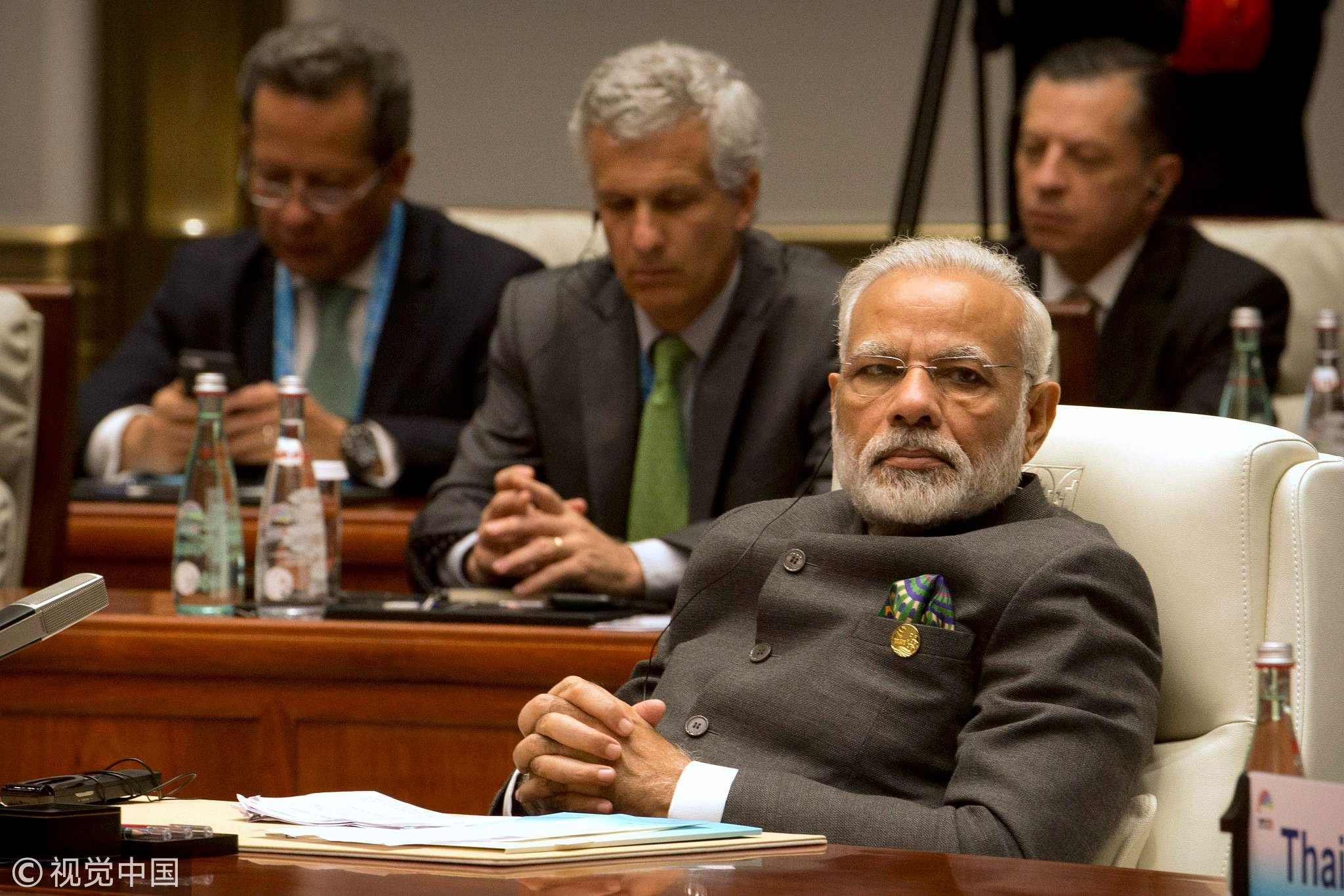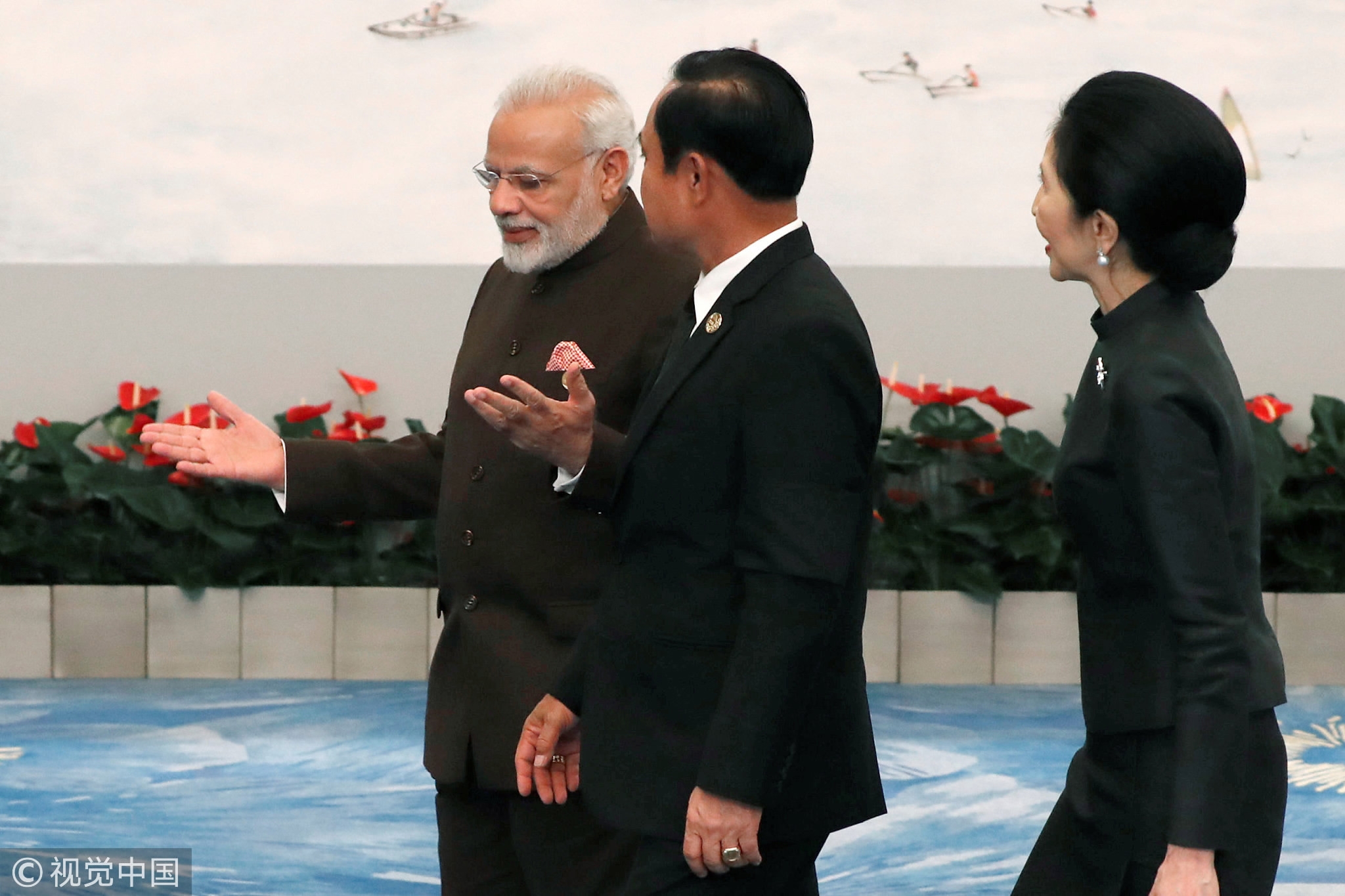
Opinions
12:51, 25-Apr-2018
Opinion: India's anti-terrorism agenda at SCO
Guest commentary by Swaran Singh

SCO Foreign and Defense ministers meeting in Beijing this Tuesday underlined how terrorism and protectionism mark the twin-challenge for most of these Eurasian nations. While China has emerged as the strongest protagonist supporting free trade against increasing protectionist impulses of Western nations – and was recognized as such at least since President Xi Jinping's Davos speech in January 2016 – fighting terrorism remains the pet project in all the international engagements of Indian Prime Minister Narendra Modi.
Other issues will be discussed but may also be used as bargaining chips in both China and India pursuing these primary concerns. This also explains what will be India’s approach and what it seeks out from SCO deliberation and what could Modi pursue in his meeting with Xi in Wuhan.
Addressing the SCO meeting on Tuesday, for instance, both Externals Affairs and Defense ministers of India did not mince words in stressing how India wishes SCO summit in June will put an end to the frivolous debate about "good" and "bad" terrorists. This is as counterproductive as its earlier version of one's terrorist being other's freedom fighters.
Second, India would like SCO to expand its focus from its current limited bandwidth of just countering terrorists and terrorist actions to also identifying states that provide sanctuaries, support and finance terrorists outfits.
The same message is likely to be iterated by Indian Prime Minister during the coming Modi-Xi summit this Friday to be followed later at the Qingdao summit in June.
Of course, terrorism remains a contested paradigm and there remains a wide variance amongst SCO members’ perspectives, including amongst major players like Russia, China, India and Pakistan.

September 5, 2017: Indian Prime Minister Narendra Modi listens to a speech during the Dialogue of Emerging Market and Developing Countries on the sidelines of the 2017 BRICS Summit in Xiamen, southeastern China's Fujian Province. /VCG Photo
September 5, 2017: Indian Prime Minister Narendra Modi listens to a speech during the Dialogue of Emerging Market and Developing Countries on the sidelines of the 2017 BRICS Summit in Xiamen, southeastern China's Fujian Province. /VCG Photo
Terrorism debates are also widely feared to further flare up already acrimonious relations between India and Pakistan and negatively impact SCO deliberations. Experience so far, however, continues to defy such speculations. Both India and Pakistan have held bilateral anti-terror military exercises with both Moscow and Beijing.
Having joined SCO in June last year, both India and Pakistan had participated at its anti-cyber terror drill in Xiamen last December. Both of them will now be participating in the anti-terror "Peace Mission 2018" in Russia.
Indeed, the overall demeanor during various SCO interactions so far reposes confidence of both sides being focused on utilizing SCO as platform for addressing terrorism and both promise to bring to the table their enormous practical experience in addressing terrorism.
No doubt there remain divergences in their prognosis and perceptions but regular multilayered interactions in this multilateral format promise to propitiate some of their mutual suspicions and also provide opportunities for clarifications. Bridging that gap has not been possible in their on-again, off-again bilateral negotiations.
With regards to China, it remains focused on developmental issues with President Xi's Belt and Road Initiative at its center. It is important to remember that India had absented itself from the 2017 Belt and Road Forum for International Cooperation (BRF). Other than this one abstention, India stands tall as the second largest stakeholder in the Asian Infrastructure Investment Bank that funds BRI projects.
Also, only four weeks before the May 2017 BRF, India had hosted in Kolkata consultations of the Study Group of BCIM Economic Corridor of which India remains the most committed partner. Of course, India has serious concerns regarding China's flagship BRI project – China-Pakistan Economic Corridor (CPEC) – that passes through disputed Kashmir region.
It remains to be seen how India uses the coming "informal" summit as well as the SCO meetings to strike a bargain in seeking China's support for its counterterrorism campaign and also redress its concerns about the CPEC before endorsing the BRI even as a broad vision for the future.

September 4, 2017: Indian Prime Minister Narendra Modi talks to Thai Prime Minister Prayut Chan-o-cha before the welcoming banquet for the BRICS Summit in Xiamen, China. /VCG Photo
September 4, 2017: Indian Prime Minister Narendra Modi talks to Thai Prime Minister Prayut Chan-o-cha before the welcoming banquet for the BRICS Summit in Xiamen, China. /VCG Photo
Hope today lies in the conciliatory tone from both Chinese and Indian leaders. Their high-octane polemics during last year's 73-day long military standoff seems now like a thing of past. There are signs of both sides hoping to reset their equations and showcase their global leadership by synergizing their strategies for which Modi-Xi summit this Friday could provide the critical first kick-start.
(The author is professor of international relations at Jawaharlal Nehru (New Delhi) and visiting professor at the Research Institute for Indian Ocean Economies (Kunming). The article reflects the author's opinion, and not necessarily the views of CGTN.)

SITEMAP
Copyright © 2018 CGTN. Beijing ICP prepared NO.16065310-3
Copyright © 2018 CGTN. Beijing ICP prepared NO.16065310-3